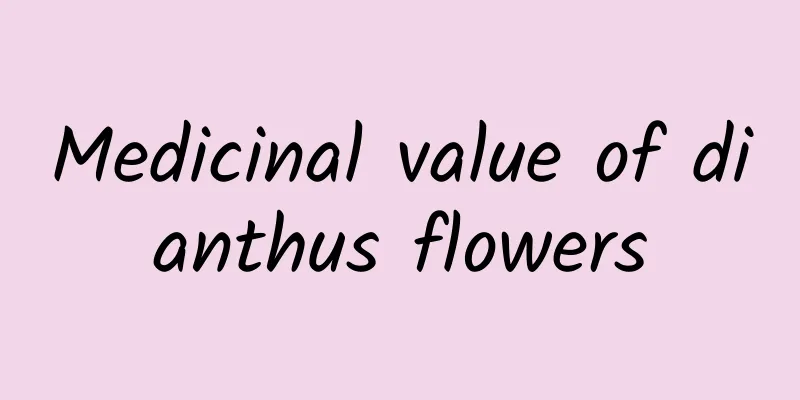Where does the smell of cilantro come from? Is your love for it determined by your genes?

|
This article was reviewed by Sun Hai, a plant science writer I heard today is "World Hate Cilantro Day"?! People have always had two extreme opinions about coriander: one is that it has a pleasant aroma, and the other is that it stinks. I don’t know if you have heard this saying, but whether you like to eat coriander is determined by your genes. By analyzing the chemical composition of coriander leaves, scientists found about 40 compounds, 82% of which were aldehydes and 17% were alcohols, so aldehyde compounds are the main source of coriander's strong smell. A 2012 study suggested that a mutation in the receptor OR6A2 may be one of the reasons why people don't like cilantro. People who don’t like coriander have a gene called “OR6A2” on chromosome 11. This gene is related to the olfactory receptors and is very sensitive to aldehyde compounds. People who have this gene or who have not mutated this gene will more easily smell coriander as a stink bug. The gases released by soap and bed bugs both contain aldehyde compounds, so this is why some people are repelled by the smell of cilantro, thinking that it smells like bed bugs and soap. But strictly speaking, the evidence for this hypothesis is not sufficient so far. This 2012 study particularly emphasized the role of some genes (especially "OR6A2"). In fact, this gene is just an ideal hypothesis of odor receptors. The conclusion that "genes determine whether you like coriander or not" is based on the fact that this odor receptor can recognize specific aldehydes in coriander that are related to the "soap scent". "There is currently no data to show which odors can activate the receptor OR6A2." The sense of smell, taste, and trigeminal nerve may all play a role in the liking and aversion to coriander. Furthermore, multiple studies have shown that how humans feel about cilantro also depends on cultural context. Whether we like cilantro or not may have as much to do with where we grew up as with how we feel and think when we eat it. In fact, the content of various nutrients in coriander is not low, the most important ones are vitamin C, dietary fiber, carotene, potassium, etc. As a seasoning vegetable, coriander is generally not cooked at high temperatures, which can prevent the loss of vitamin C. At the same time, the calcium content in coriander is also very high, and there are many volatile oil substances that can stimulate appetite. Wu Yan, from the Department of Nutrition at Union Hospital affiliated to Tongji Medical College of Huazhong University of Science and Technology, said that if you are not allergic to coriander, you can slowly try it in small amounts and you may start to like it over time. Here @If you don’t like coriander, would you like to try it more? Science China (ID: Science_China) compiled from Health Times and CCTV Video Please indicate the source for reprinting: Science China (ID: Science_China) The pictures in this article with the "Science Popularization China" watermark are all from the copyright gallery. The pictures are not authorized for reprinting. |
Recommend
The efficacy and function of the unique flavor
Recently, major TV channels have launched various...
The efficacy and function of sunflower leaves
Speaking of sunflower leaves, I believe many frie...
Please fill in the blank: Eat meat but not garlic, ___________
Audit expert: Wang Guoyi Postdoctoral fellow in N...
The nest of Beijing swifts at Zhengyangmen is empty, and the "epic migration" begins again
The Beijing Swift is the only wild migratory bird...
A herbal remedy for fungus
Bacteria are the smallest but most powerful subst...
What are the medicinal values of Huangling?
We all know that Huangling is a Chinese patent me...
The efficacy and function of the hairy leaf rabbit ear wind
Regarding the hairy-leaved rabbit's ear herb,...
The efficacy and function of spatula leaves
Everyone is familiar with spatula leaves, of cour...
More and more young people are diagnosed with thyroid problems. To protect the "bow tie" in your body, start with these 4 things
The thyroid gland, a butterfly-shaped gland locat...
The efficacy and function of pumpkin seeds
Diseases require improvement through medicine. Di...
What to do when being besieged by killer whales? Sperm whales: Let's do it together | Nature Trumpet
Welcome to the 55th issue of the Nature Trumpet c...
"See through!" Chinese scientists take first complete X-ray of the moon
"The bright moon rises over the sea, and peo...
To create a "feeling of atmosphere", a girl was poisoned after taking oleander in her mouth! Netizens: Believe what An Lingrong said...
recently, News that "Girl was poisoned after...
Can Cordyceps sinensis be chewed?
Cordyceps sinensis is a Chinese herbal medicine, ...
New method of controlled nuclear fusion subverts expectations, is the first light about to be lit?
Yesterday I saw a piece of news that overturned m...









